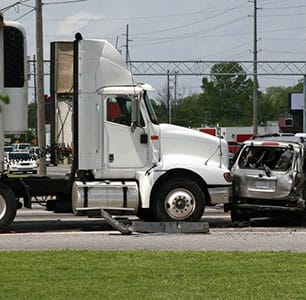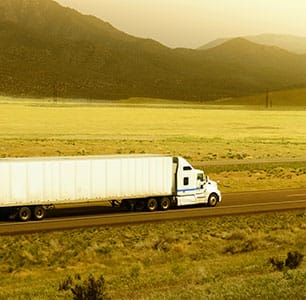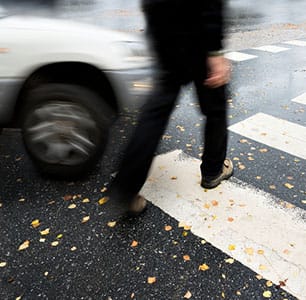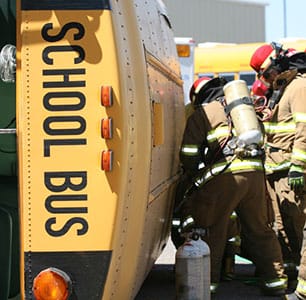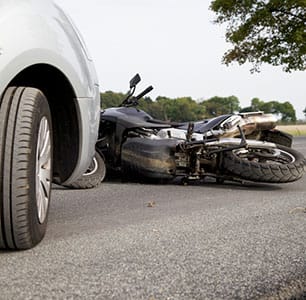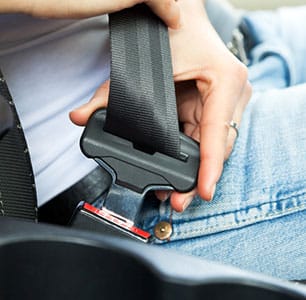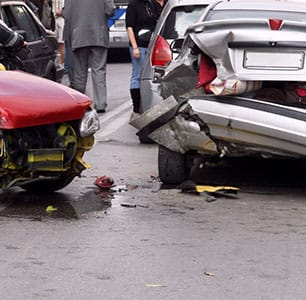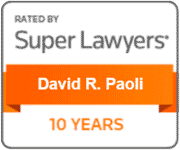Accident FAQs
If you’ve been in a car crash or other type of collision involving a motor vehicle, here are some things you should know:
1. How do I pay for my medical bills?
If the collision was clearly not your fault, the other driver’s insurance company may have to start paying your medical expenses immediately, without waiting to settle your entire case.
If you have “medical payments” coverage on your own car insurance policy, your own insurance company may have to pay your medical expenses regardless of who was at fault.
Additionally, your medical expenses may be covered by your health insurance. Depending on the facts of your case, the other driver may or may not be entitled to an offset for payments by your health insurance. Depending on the facts of your case, your own health insurance may or may not be entitled to recover some or all of any accident-related medical bills it has paid when you eventually settle with or get a court judgment against the other driver.
2. How do I recover my lost income?
Often, a car accident or other motor vehicle collision forces the injured person to miss work. This means lost income and may jeopardize your ability to keep your bills current. Your lost income is part of what you can eventually recover in settlement or in court. But in Montana, depending on the facts of your case, the insurance company may have to start reimbursing you for wage loss immediately, without waiting for settlement or judgment in the whole case.
3. How do I protect myself and my family against other drivers who have no insurance at all or insurance with low policy limits?
By buying uninsured and underinsured motorist coverage on your own car insurance policy in an amount appropriate to your family’s standard of living.
Montana law requires every driver to have liability insurance with a minimum limit of $25,000 per person. Unfortunately, some drivers break the law by driving without insurance. Others buy only the statutory minimum of $25,000. The statutory minimum of $25,000 may very well not be enough if you suffer a catastrophic injury with very high medical bills, or if you can’t return to your job. “Uninsured motorist” coverage protects you when the other driver has no insurance at all. “Underinsured motorist” coverage protects you when the other driver does have some insurance but doesn’t have enough to cover the full extent of your losses. So if your uninsured motorist coverage is too low, or if you don’t have underinsured motorist coverage at all, or if you do have it but the limits are too low, you could have significant unpaid medical expenses and other damages.
Montana law requires your car insurance policy to include uninsured motorist coverage unless you specifically reject it. If you reject it, your insurance company doesn’t ever have to offer it to you again unless you specifically request it. Everyone’s situation differs, but for most Montanans there is no good reason to opt out of this coverage. If you have this coverage and the other driver doesn’t have insurance, your own insurance company may have to pay your damages up to the amount of the uninsured motorist coverage limit as if it insured the at-fault driver.
Underinsured motorist coverage is only optional. The insurer doesn’t have to offer it to you, so you should ask your agent about it specifically. If you have it and the other driver doesn’t have enough insurance to pay for all of your damages, your own insurance company may have to pay the difference between the amount of the other driver’s insurance limits and your damages or the limit of your underinsured motorist coverage, whichever is less. Everyone’s situation differs, but for most Montanans there is no good reason to opt out of this coverage.
A good insurance agent will be fully informed about the purpose, cost, and benefit of these additional types of coverage. Be sure to discuss them thoroughly with your agent.
4. How do I get my car or truck repaired?
The at-fault driver is legally responsible for repairing or replacing your vehicle.
Insurance companies may try to get you to take your car or truck to one of their “preferred shops.” You’re not obligated to use one of these shops. You can have your car repaired at a shop of your own choice.
If your vehicle can’t be repaired, the insurance company owes you the value of a similar vehicle in like condition in the area in which you live. This is important because some insurers offer to pay based on sale prices in faraway cities, hoping you won’t know any better.
If you have collision insurance, your own insurance company has to pay for the repairs to your vehicle less your deductible.
5. What can I do to be prepared?
- Carry an emergency kit in your car that includes safety flares, triangles or cones.
- Carry a pen and notepad in your glove box.
6. What do I do if I’m in a car accident?
- Call 911.
- Stop at the scene or as close to the scene as is safe.
- Try to stay calm.
- Don’t blame anyone else or argue with the other driver[s].
- Set out safety triangles, cones or flares to warn other drivers.
- Try to help anyone who is injured.
- Call 911 regardless of how minor the collision is. Many people may ask you to not call the police because they don’t want to get a ticket or they don’t want their insurance rates to go up. Not calling the police is a mistake. Depending on the amount of the damage, you may be legally obligated to notify law enforcement and could be ticketed if you fail to do so. Besides, you need them to come to the scene to document what happened and record what happened. You or others may need first aid or other prompt medical attention. People may be more seriously hurt than any of the drivers understand.
- Get information from the other driver[s]. Ask for and write down the full names, addresses and phone numbers of the other driver[s], all passengers, and any witnesses. Write down the name of the other driver[s]’ insurance company, policy number, agent and telephone number. Get the name and badge number of any law enforcement officer at the scene. Write down who the registered owner of the vehicle is.
- Take photographs. Use a camera or cell phone to photograph the crash scene, before the cars are moved if possible. Photograph the damage to all vehicles and the license plate of each vehicle involved.
- Take notes. Write down what happened, the weather, time of day, road conditions, whether anyone was injured, whether anyone appeared intoxicated, signs of alcohol use. Take note of whether anyone claimed responsibility.
- Get medical help. If you have any doubt about whether you are injured or need medical help, call 911 for an ambulance, go to the emergency room, or see your doctor immediately. Often, injuries from auto collisions take a little time to reveal themselves. Don’t delay medical care. If you do, you will likely delay your recovery and the insurance company will likely argue that you weren’t injured in the collision. Don’t let this happen.
What NOT to do:
- DON’T admit fault. State the facts and answer any questions from law enforcement officers. But don’t admit the collision was your fault, even if you think it was, because you don’t know enough about the facts or the law to understand who is at fault and who is not. There may be a time later for admitting fault if the facts and law require it, but the collision scene is not the place to be guessing about who was and was not at fault.
- DO NOT sign anything from an insurance company. They will often try to get you to sign documents allowing them to get your past medical records and talk directly to your doctors. You may not necessarily have to give them that access to your medical records and doctors.
- DON’T leave the scene until law enforcement officer tells you it is OK or everyone else leaves.
- DON’T accept any payment at the collision scene from the other party for repairs or medical payments.
- DON’T try to negotiate with the claims adjuster. Adjusters negotiate claims for a living. They are trained to size you up and settle for as little as they can.
- DON’T settle your claim without talking to an attorney.
Talk With An Experienced Attorney
David R. Paoli has been a licensed attorney since 1986 and has represented thousands of car crash victims. He and Paul M. Leisher together have represented many clients to achieve resolution in their car crash cases. The aggressive approach of the team at Paoli Law Firm, P.C. has helped numerous clients achieve justice in their cases. Paoli Law Firm, P.C. undertakes these types of cases on a contingent fee basis. This means our fee is a percentage of what we recover for you. If you don’t recover, you owe no attorney’s fees.
Contact us online or call us to request a free consultation at 406-542-3330 or 800-332-4308.

